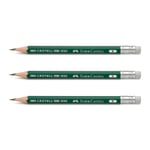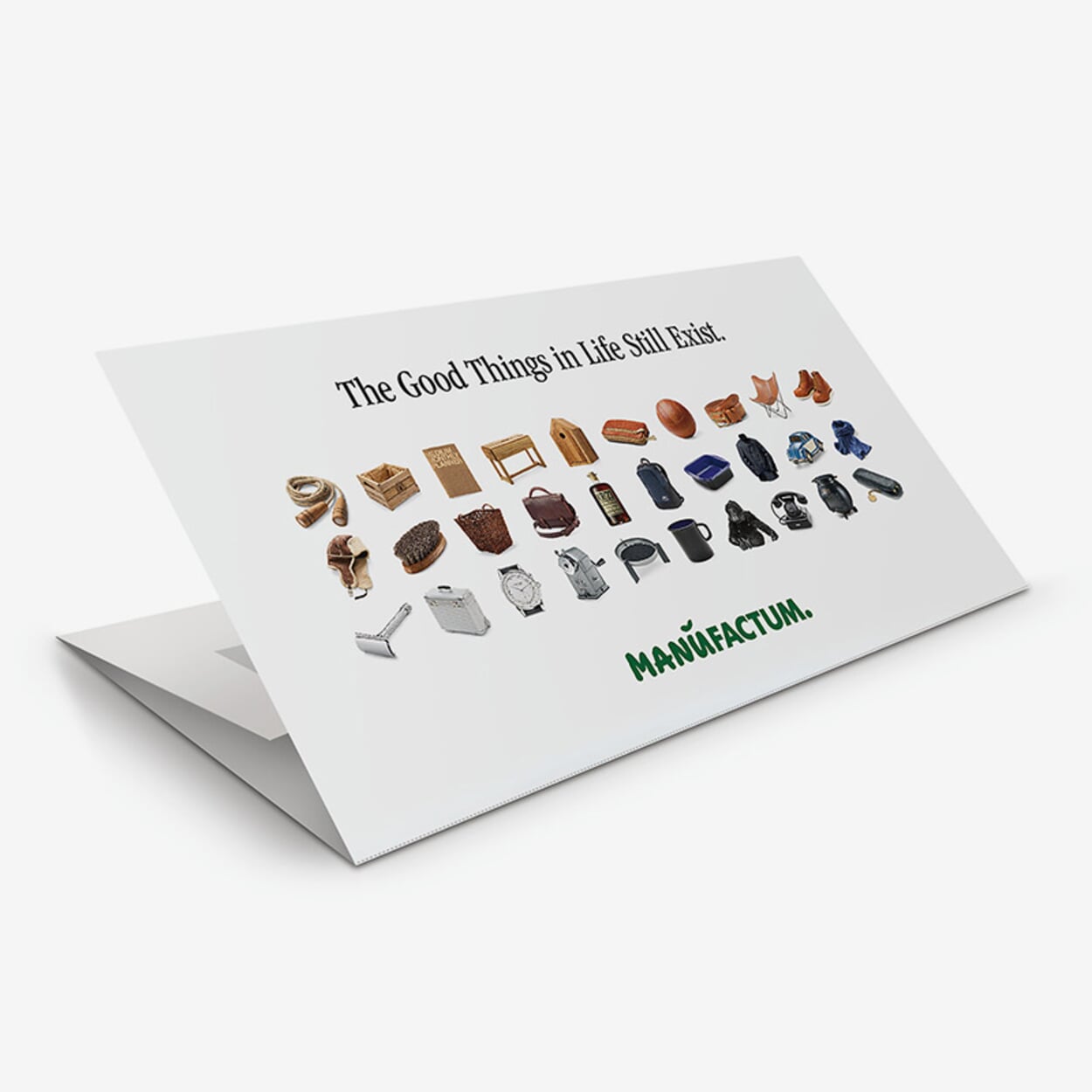Spare pencil 13 cm

Spare pencil 13 cm
- Famous "green": the Castell 9000 since 1905
- Special design: short pencil for shirt pocket and pen loop
- Also usable without attachable extender
General Information
Faber-Castell: the 9000 Series. It gets no better.
The most famous pencil of all called the "Green" in Germany, officially the 9,000. It turned 100 in 2005. We present it here in a special edition to be tucked into the shirt pocket, with a holder and extender that protects the lead and conceals a sharpener.
Graphite and colored pencils.
"A pencil – like one you should make yourself! Imagine humanity is gone,and you have to make a pencil yourself – Presto!" (Arno Schmidt)
The history of the pencil in the sense of the word today begins with the discovery of the first English graphite mines in the 17th century. The problem was that the pencil lead cut in whole pieces was a luxury. That changed when the Frenchman Nicolas Jacques Conté and the Austrian Josef Hardtmuth at the end of the 18th century developed a ceramic process to produce pencil leads. They mixed graphite dust with clay and fired the leads in an oven, with the amount of clay and length of time in the oven determining the hardness of the lead. The advantages of this mixture are history: the high level of stability made it possible to write with a vertical tip, with good smear resistance, that was relatively impervious to fading. And a welcome opportunity: upon sober reconsideration one could erase what one had written.
Graphite Pencils and Accessories.
”A pencil – if you should produce it from scratch! Imagine humanity is gone, and you have to make a pencil yourself – it’s magic!“ (Arno Schmidt)
The history of the modern pencil begins with the discovery of the first English graphite mines in the 17th century. However, with success came a problem: The pencil leads were cut from massive material, and the resulting pieces were a luxury. That changed when the Frenchman Nicolas Jacques Conté and the Austrian Josef Hardtmuth developed a ceramic process to produce pencil leads. At the end of the 18th century, they began to mix graphite dust with clay and fired the leads in an oven, with the amount of clay and length of time in the oven determining the hardness of the lead. The advantages of this mixture made history: With the high level of stability, it became possible to write with a vertical tip, with satisfying smear resistance, that was relatively impervious to fading. And a welcome opportunity for the writer emerged: upon sober reconsideration, one could erase what one had written.
Product Information
Article Number 79424
- Famous "green": the Castell 9000 since 1905
- Special design: short pencil for shirt pocket and pen loop
- Also usable without attachable extender
Three spare pencils for Faber-Castell pencil with attachment.
Hardness B (soft). Length 13 cm.
Have a question?
If you have a question concerning this product you are welcome to contact us. For this your E-Mail program will open.
Contact Us
For advice, spare parts or special requests - our customer service will take care of your questions and concerns, personally and competently.
You can reach us from Monday to Friday at +49 2309 939095 or anytime at info@manufactum.com
Gift Certificates
It is good for everything: With our PDF gift certificates you can choose from the entire Manufactum selection. Pick a motif which you can send by email or print out and present personally, immediately after submitting your order.
Order now


